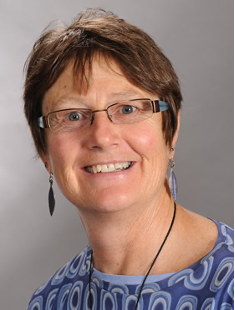Qualitative Research at a Distance
This toolkit is a starting point for academic and non-academic communities to explore approaches to socially-distanced but deeply engaged qualitative research methods. Each method described has its own benefits and shortcomings, and place in the qualitative methodological tool kit. Our goal is to provide a practical foundation for imagining the range of what is possible in social research during lockdown, and then point to resources to more fully engage in learning these methods.
Software and Data
Quantitative Guide
Qualitative Guide
Software Pooling
Request Access to Qualtrics
November 2020: Plan to Communicate
How many times have you committed to sharing your research with the public while not quite knowing how? Mihaela Gruia from Research Retold joins us from the UK for a two-part workshop series on developing a communications plan. Learn to effectively share research findings with a broad range of audiences. Videos and related materials are below.
December 2020: Mental Models, Trust, & the Translation of Science
This workshop with Dr. Brian Southwell explores the latest understanding of how social and political opinions are formed and re-formed, and the implications for how researchers should think about designing the message that communicates their work.
January 2021: Telling data-driven stories: Lessons from Journalism
Data journalism is the marriage of data analysis, visualization, and public interest storytelling, where datasets and reproducible analysis methods inform (and are informed by) the development and communication of a compelling narrative. Canadian data journalism pioneer Roberto Rocha (CBC/Radio-Canada ) has built us a series of complete-at-your-own-pace pace modules to help you apply these skills to your research. This will be followed by a Live Q&A session on-January, 28, 2021 from 1:00 – 3:00 pm ET. Learn more!
March 2021: Design principles for data visualization
Juan Velasco, data journalist and founder of 5W Infographics, will lead two synchronous learning sessions. In the first session, he will explain why data visualization is important and discuss design principles for effective communication. Participants will then have access to additional videos and exercises to apply the design principles to their own visualization. In the second sessions, participant designs will be reviewed and discussed, and Juan will discuss several different tools that are available for researchers to make their own visualizations. Registration information will be available soon!
At Spark, we get so excited about the work some researchers are doing that we keep calling until they agree to come share some of their magic with us. Here are a couple of those that blew us away with their research innovations large and small.
Drs. Carisa Showden and Karen Nairn
These two amazing women were doing community based research with Maori communities in New Zealand and realized that the standard process of informed consent, where people agree to everything all upfront, didn’t work with the trust-building process in community-engaged research. So they worked with their ethics board to develop “rolling consent”. We brought representation from MREB to the conversation, and they said, ‘yes, we can do rolling consent too!’
Link to Dr. Showden and Dr. Nairn's presentation.


Photos of Dr. Karen Nairn (left) and Dr. Carisa Showden (right)
Dr. Yotam Shmargad
Dr. Shmargad is interested in how ideas spread on Twitter. Finding that the Twitter API didn’t meet all his needs, he began bootstrapping methods to track the impact of tweets. If you are interested in dissemination of ideas through social media, his work could be a real inspiration.
Link to Dr. Shmargad's presentation.

Photo of Dr. Yotam Shmargad
Ms. Shonta’ Allen and Mr. Allen Santinelle Martino
Many of us recognize the importance of intersectionality, and the tensions that can exist within our own identities. But it’s not as common to engage subjects in deep reflection on those intersections. Ms. Allen has focused her PhD research on digging deep into Black Christian millennials understanding of their identities as Black and as Christian in an era where those can feel at odds politically. Mr. Martino has explored the tension that can exist in the identities of those with disabilities as sexual beings. Like Ms. Allen, he digs deep into the experience of those experiencing life at the intersection of these identities.
Link to Ms. Allen's presentation.
Link to Mr. Martino's presentation.


Photos of Ms. Shonta' Allen (left) and Mr. Allen Santinelle Martino (right)
Finding Your Team
Sometimes finding the right collaborator makes all the difference.
If you are looking for a collaborator, student, or research project to engage in, please fill out this google form and we will help match you.